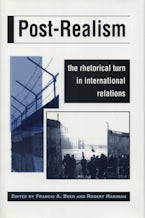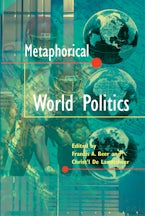The end of the Cold War encourages new perspectives on international relations. Beer and Hariman provide a comprehensive set of essays that challenge and reinterpret the tradition of realism which has dominated the thinking of academics and foreign policy makers. Post-Realism: The Rhetorical Turn in International Relations systematically discusses the major realist writers of the Post-War era, the foundational concepts of international politics, and representative case studies of foreign policy discourse.
These essays demonstrate how realism operates rhetorically and point the way toward a richer understanding of world politics.
ContentsAcknowledgmentsI. Refiguring RealismRealism and Rhetoric in International RelationsII. Rereading Realist WritersHenry Kissinger: Realism’s Rational ActorRealism Masking Fear: George F. Kennan’s Political RhetoricReinhold Niebuhr and the Rhetoric of Christian RealismE. H. Carr: Ambivalent RealistMartin Wight: International Relations as Realm of PersuasionHans J. Morgenthau In Defense of the National Interest:On Rhetoric, Realism, and the Public SphereIII. Rewriting Realist ConceptsRethinking SovereigntyThe Meaning of SecurityMetaphors of Prestige and Reputation in American Foreign Policy and American RealismNationalism and Realist Discourses of International RelationsThe Gender of Rhetoric, Reason, and RealismA Reinterpretation of Realism: Genealogy, Semiology, DromologyIV. Rewriting Foreign PolicyRhetorics of Place Characteristics in High-Level U. S. Foreign Policy MakingThe Logic of Différance in International Relations: U. S. Colonization of the PhilippinesIndigenous Peoples, Marginal Sites, and the Changing Context of World PoliticsRealistic Rhetoric but not Realism: A Senatorial Conversation on CambodiaV. Post-RealismStrategic Intelligence and Discursive Realities / Francis A. Beer and Robert HarimanList of ContributorsIndex


